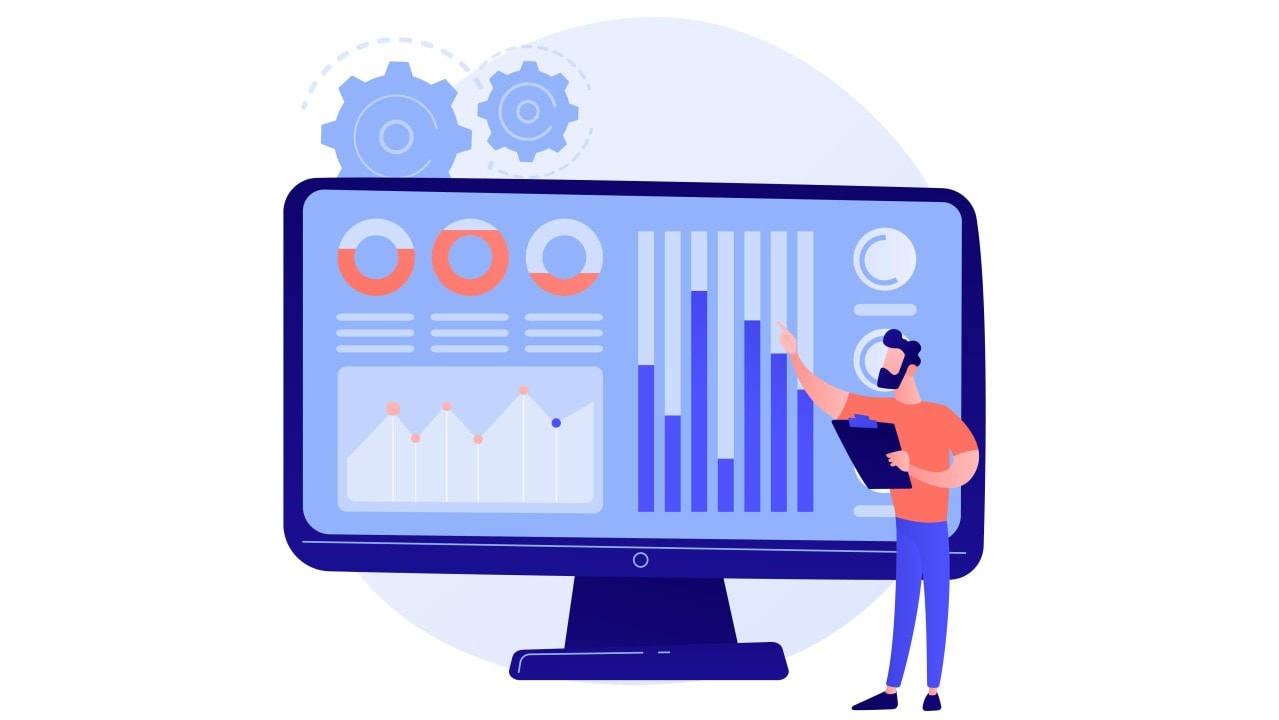Digital marketing has become an essential component of modern business strategies, offering unparalleled opportunities for business growth. By leveraging digital channels like search engines, social media platforms, and email, companies can effectively promote their products and services online. This shift from traditional marketing to digital methods has enabled businesses to stay competitive in an ever-evolving market.
The ability to target specific audiences, track real-time data, and optimize campaigns based on performance gives digital marketing a clear advantage over traditional strategies. As businesses embrace the digital age, they are discovering that digital marketing is not only legitimate but also crucial for long-term success.

What Is Digital Marketing?
Digital marketing involves promoting products and services through a variety of digital channels such as search engines, websites, social media platforms, and mobile apps. It’s a comprehensive approach that includes optimizing content for search engines through SEO, engaging with customers on social media, running pay-per-click (PPC) ads, and sending targeted emails to a defined target audience. The goal of digital marketing is to connect with potential customers where they spend most of their time—online.
In contrast to traditional marketing methods like print ads or TV commercials, digital marketing offers measurable results. Marketers can track clicks, impressions, and conversions, providing a clearer picture of campaign performance. Moreover, it allows businesses to refine their approach in real-time, ensuring better ROI.
Digital marketing channels offer a cost-effective way to build business online and drive conversions. Whether a company is a global enterprise or a small business, digital marketing enables them to reach their ideal customers efficiently and with precision.
The Power of Digital Marketing in Business Growth
One of the greatest advantages of digital marketing is its ability to help businesses transcend geographical boundaries and tap into a global audience. Whether you’re a local company or a multinational brand, digital marketing provides the tools to connect with customers around the world. This ability to expand a business’s reach beyond its physical location is a key factor in driving business growth.

Another powerful benefit of digital marketing is its cost-effectiveness compared to traditional marketing methods. By targeting specific demographics, businesses can allocate their resources more efficiently, ensuring that their marketing efforts reach the right people at the right time. As a result, digital marketing success comes from maximizing ROI while minimizing unnecessary costs.
Key Components of a Successful Digital Marketing Strategy
A successful digital marketing strategy integrates several key components, each designed to attract relevant traffic and improve search engine rankings. The following elements are critical for any business looking to boost its online presence:
- Search Engine Optimization (SEO): SEO focuses on optimizing a website’s content to rank higher on search engine results pages. By using relevant keywords and improving site structure, SEO helps businesses attract organic traffic that is more likely to convert.
- Content Marketing: Content marketing is the process of creating and distributing valuable, informative, and engaging content that resonates with your target audience. Blogs, videos, and infographics all help build brand authority while driving relevant traffic to your site.
- Social Media Marketing: Social platforms like Facebook, Instagram, and LinkedIn are excellent channels for businesses to engage directly with their audience. Social media marketing helps build relationships, drive website traffic, and increase brand awareness by creating engaging content that users share and interact with.
- PPC Advertising (Pay-Per-Click): PPC ads, such as those on Google Ads, allow businesses to bid for placement in search engine results, driving immediate traffic. This strategy is particularly effective for generating quick visibility and conversions.
- Email Marketing: Email remains a highly effective method for nurturing leads and maintaining engagement with existing customers. Personalized email campaigns help businesses stay top-of-mind and drive ongoing conversions.
By combining these elements, digital marketers ensure that campaigns are optimized for performance, attracting quality traffic, and improving search engine rankings.
Why Digital Marketing Is a Legitimate Tool for Businesses?
Is digital marketing legit? Absolutely. While there are common misconceptions about the industry, such as the belief that it’s a get-rich-quick scheme, the truth is that digital marketing campaigns require time, effort, and strategic planning to achieve results. Success in the digital marketing industry doesn’t happen overnight—it involves careful consideration of your audience, goals, and tactics.
A key reason why digital marketing is so effective is that it’s a legitimate and powerful tool for reaching today’s online consumers. Whether through SEO, content marketing, or social media, businesses can target specific demographics, track real-time data, and refine their strategies as they go.
What makes digital marketing stand out is its flexibility and adaptability to any business strategy. It allows for continuous improvement, ensuring that businesses remain relevant in a fast-paced digital world. In short, when done right, digital marketing can transform a business’s growth trajectory.
Digital Marketing vs. Traditional Marketing: The Key Differences
When comparing digital marketing with traditional marketing methods, the differences are stark. Traditional marketing often includes offline strategies like print ads, TV commercials, and direct mail, which can be costly and harder to track. In contrast, digital marketing allows businesses to precisely target specific demographics and tailor messages to the right audience at the right time.
One of the biggest advantages of digital marketing is the ability to track and measure every aspect of a campaign. Tools like Google Analytics provide real-time insights into how well a campaign is performing, from traffic sources to conversions. This level of data transparency is something traditional marketing methods simply can’t offer.
Moreover, unlike traditional methods that rely on mass appeal, digital marketing offers the opportunity for businesses to refine their approach and reach the most relevant target audience. Whether it’s through SEO, PPC ads, or social media marketing, businesses can adjust their strategies based on the behaviors and preferences of their audience, ensuring better results and higher returns.
How to Avoid Common Digital Marketing Scams?
The rapid rise of digital marketing has also opened the door to various digital marketing scams that can cost businesses time and money. One common scam is the promise of fake social media followers. Some agencies claim they can quickly boost your follower count, but these followers are often bots or inactive accounts that don’t contribute to genuine engagement or business growth.
Another scam involves falsified client portfolios where agencies showcase fake success stories or inflated results to appear more credible than they are. Similarly, lead generation fraud is a tactic where companies provide manipulated or low-quality leads that don’t convert, all while charging businesses for these worthless contacts.

To protect your business, it’s essential to do thorough research before hiring a digital marketing agency. Start by asking for real references and following up on them. Verifying the credentials and past work of digital marketers will help you ensure they are legitimate. Additionally, always request regular reports on campaign progress. This transparency helps you monitor what’s working and prevents fraudulent activities. Avoid business directory scams by checking if the directories being used are reputable and actually drive traffic.
By staying vigilant and researching thoroughly, businesses can avoid falling victim to these common digital marketing scams.
The Role of Digital Marketers in Business Success
Digital marketers play a pivotal role in crafting and executing successful marketing campaigns. These professionals are responsible for developing strategies that encompass SEO, content marketing, social media marketing, and paid ads to help businesses achieve their goals.

Hiring legitimate digital marketers is crucial because they deliver real value through valuable and relevant content, data-driven insights, and proven methods like SEO to boost your online visibility. A reputable marketer will focus on optimizing campaigns to drive relevant traffic, increase engagement, and ultimately generate leads that turn into customers. Legitimate digital marketing efforts are measured, strategic, and designed to provide sustainable business growth.
SEO and Its Impact on Online Visibility
Search engine optimization (SEO) is one of the most powerful tools for improving a website’s online visibility. SEO focuses on optimizing your site’s structure, content, and technical elements to help it rank higher on search engine results pages (SERPs). By doing so, businesses attract more organic search results, which often lead to better engagement and conversions.
SEO affects your search engine rankings by aligning your content with what users are searching for, using relevant keywords, and improving overall website usability. The higher your rankings, the more likely you are to be found by potential customers, which can significantly increase your relevant traffic.
SEO is not a one-time task but a long-term strategy that continuously evolves with search engine algorithm updates. By focusing on SEO, businesses can consistently attract organic search results, drive traffic, and stay ahead of competitors in their industry.
Social Media Marketing: Engaging Potential Customers
Social media marketing is essential for connecting with and nurturing potential customers on platforms like Facebook, Instagram, and LinkedIn. These social media platforms allow businesses to engage directly with their audience through targeted ads, posts, and interactions.
Creating engaging content that resonates with your audience is key to building strong customer relationships. Whether it’s through eye-catching visuals, informative videos, or interactive polls, the goal of social media marketing is to encourage conversations and foster brand loyalty. By consistently engaging with your audience, businesses can turn followers into loyal customers, driving long-term growth.
Content Marketing: Distributing Valuable Information
Content marketing revolves around creating content that not only informs but also engages your target audience. The primary goal of content marketing is to deliver valuable content that addresses your audience’s pain points, interests, and needs, while subtly promoting your products or services.
High-quality relevant content not only helps to build brand authority but also improves your website’s search engine rankings. The more helpful and informative your content is, the more likely it is to be shared, linked to, and referenced by others—further boosting your SEO efforts. When done right, content marketing becomes a cornerstone of a successful digital marketing strategy, helping businesses attract and retain customers over time.
Digital Marketing and the Mobile-First World
In today’s mobile-first world, optimizing your digital marketing campaigns for mobile devices is no longer optional—it’s essential. With the vast majority of users accessing websites and content through their smartphones and mobile apps, businesses need to ensure their digital presence is mobile-friendly. This involves having responsive websites that adjust seamlessly to various screen sizes, as well as creating mobile-friendly content that loads quickly and offers an intuitive user experience.
Mobile optimization helps attract and engage mobile users, who now represent a dominant share of online traffic. Neglecting to optimize for mobile devices can lead to high bounce rates and missed opportunities, especially as consumers increasingly rely on their phones for shopping and browsing.
Digital Marketing Metrics: Measuring Success
One of the major advantages of digital marketing is the ability to track and measure every aspect of your campaigns using tools like Google Analytics. These detailed metrics help businesses monitor traffic sources, user behavior, and conversions in real time, providing actionable insights for improving digital marketing efforts.

By analyzing these metrics, businesses can make data-driven decisions that optimize their strategies for better digital marketing success. Whether it’s tweaking an ad campaign or adjusting content based on user engagement, having access to such precise data allows for continuous improvement and higher returns on investment. Effective use of Google Analytics and other tools helps businesses stay competitive and achieve long-term growth.
Partnering with a Reputable Digital Marketing Agency
Partnering with a reputable digital marketing agency can offer immense value, helping businesses navigate the ever-evolving digital landscape. A trustworthy agency provides expert guidance on strategies like SEO, PPC, and content marketing to help you achieve your business goals. Experienced digital marketers have the skills to optimize your campaigns for better results, driving relevant traffic, improving search rankings, and boosting engagement.
When selecting an agency, it’s important to research their track record, request references, and review case studies to ensure their methods align with your goals. Look for trustworthy digital marketers who provide regular performance reports and emphasize transparency. A solid partnership with a reputable agency will lead to measurable, long-term business growth.
Is Digital Marketing Legit? The Final Verdict
So, is digital marketing legit? Absolutely. Digital marketing has proven to be a vital tool for driving business growth and reaching wider audiences. Whether through SEO, social media, or content marketing, businesses can achieve digital marketing success by leveraging these strategies. Investing in digital marketing is not just legitimate—it’s essential for sustained growth and an improved online presence in today’s digital-first world.



